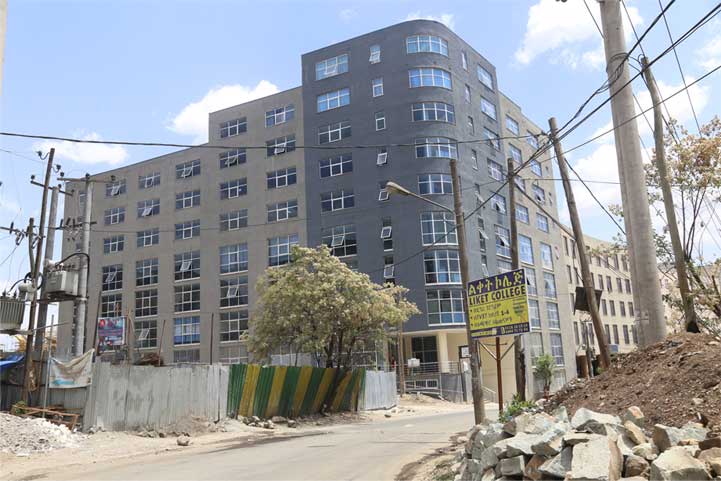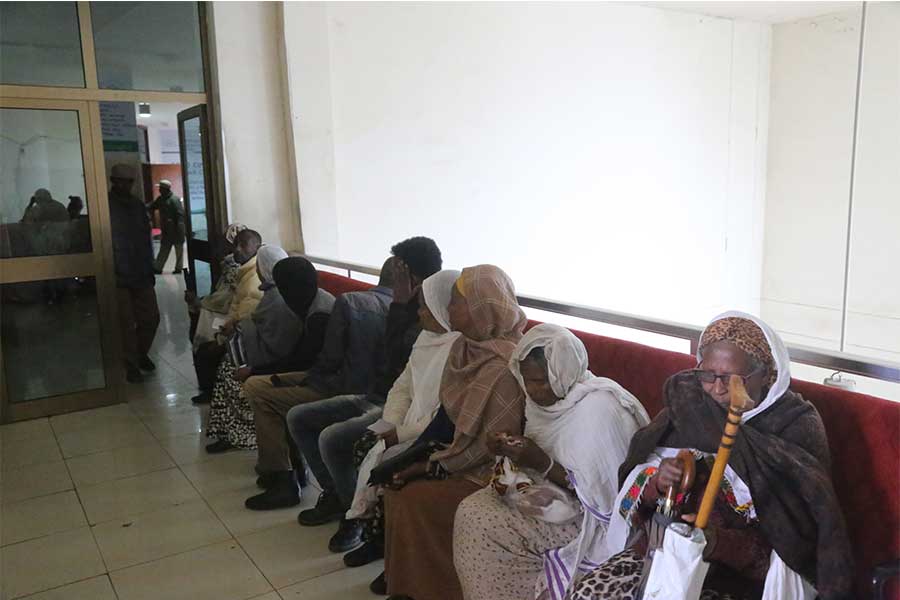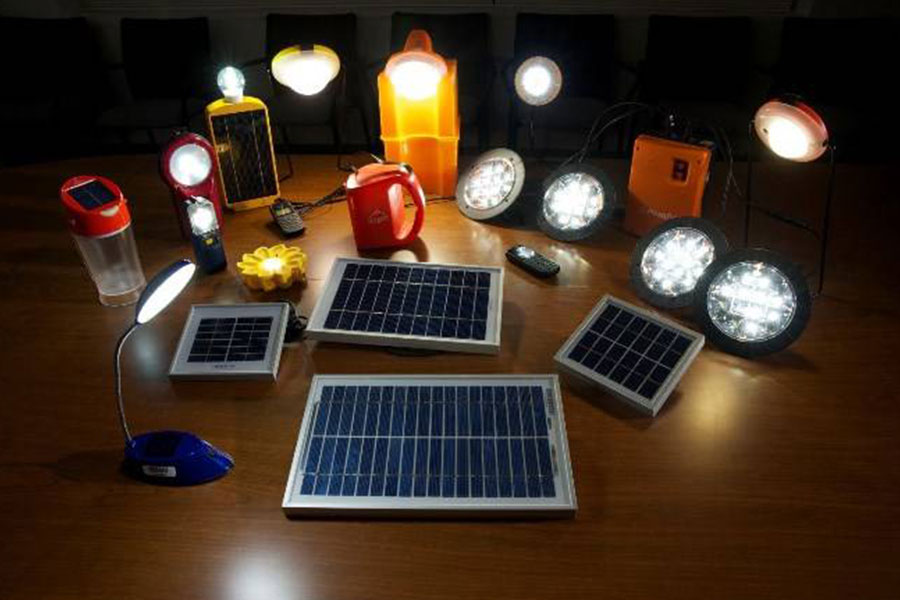
Radar | Oct 09,2021
The central bank released its much-anticipated report for the second quarter last week, albeit it did so almost five months later than it was initially expected to. It was not like any other, covering a period when the administration of Prime Minister Abiy Ahmed (PhD) took measures that were both profound and consequential.
Shrouded in piles of numbers is a change in the federal government's budget utilisation, which has seen retrenchment in capital spending, perhaps due to circumstances difficult to foresee during the budget planning period last year. There has been a drastic increase in recurrent expenditures, at 41.1 billion Br by the end of the second quarter, what was paid to general services claimed close to half of what has been allotted for the whole year.
What stands out is spending on defence, which has seen a drastic increase in the second quarter to 16.4 billion Br, an amount only 49 million Br less than the entire annual budget slated for defence and 54pc higher than what was spent over the same period last fiscal year. Historically, a fourth of the annual budget would be disbursed every quarter, as the case was during the first quarter of the budget year when a little lower than two billion Birr was apportioned.
This signifies the tremendous attention given to security matters, with the country in the midst of a civil war in Tigray Regional State. But this comes at a cost.
The federal government has yet to spend even half of what it did on economic development and social services during the same period last year.
Out of the 168 billion Br budget apportioned this year for economic development, only a third of it had been utilised by the end of the second quarter, seven percentage points lower than what was expended during the same period last year. Spending on mines and energy; trade, industry and culture; as well as urban development and roads construction, have all dwindled.
According to Wasihun Belay, a development economist with over a decade of experience, these are not just figures flying around.
They reveal a sudden alteration in the macroeconomic situation of the country, which could suffer more if the same trend has continued in federal government spending during the final two quarters of the year.
“If recurrent spendings grew higher than capital investment, it shows that the budget allotted for development projects is being used to cover administrative expenses," said Wasihun. "It's a disservice to the economy.”
The annual budget allocated has been growing over the last decade, reaching an all-time high of 561 billion Br expected to be approved for the next fiscal year.
In the absence of an official explanation for the quiet move away from capital investments and the emphasis on recurrent spendings, economic pundits believe it is an attempt to finance a budget deficit without massive borrowing from the central bank. The federal government was hoping to limit its borrowing to pay for the deficit at 126 billion Br, which was projected to account for 3.1pc of the GDP, though the amount is expected to be much higher than this in light of the additional budget approved last week. This is far from the 2.4pc average for the past decade, leaving macroeconomic analysts worried about the financing mechanism.
Then comes the war in Tigray, compelling the federal government to use the defence budget for the whole year within just six months, signalling that the federal budget deficit will be much larger than what was initially thought.
However, macroeconomic policymakers continue to pretend it is business as usual, considering the budget bill approved by the Council of Ministers two weeks ago. The 561 billion Br in the federal budget for the fiscal year 2021/22 emphasises capital expenditure, representing 33pc and four percentage points larger than that apportioned to recurrent spendings.
More capital expenditure signifies higher investments in public infrastructure, according to Abdulmenan Mohammed, a financial expert with almost two decades of experience, who is worried about the narrowing of the gap between the recurrent and capital expenditure year after year.
"When its shares decline, it means there are development projects that have been cut, a situation that has happened in the first six months of the current fiscal year for apparent reasons," he said.
The conflict in Tigray and the instability across the country, if not COVID-19, have already increased the recurrent expenditure of the government, a situation which is likely to continue in the upcoming financial year.
Little change on the ground this year also means a tighter budget squeeze, further complicating financing the federal budget deficit. It is projected to reach 125.7 billion Br in the budget bill before parliament, a two percent increase from the preceding fiscal year.
During the next fiscal year, around two-thirds of the budget is planned to be covered by domestic revenues, while 22pc is to be financed through borrowing from foreign and domestic sources, and the remaining 12pc from foreign grants.
The budget assumes an economic growth three times larger than the two percent the IMF projects; where inflation is kept at bay; capital investments increase; and domestic revenue mobilisation grows by more than five percent while businesses are affected by a series of developments. With the ongoing situation across the country, which makes revenue collection difficult, doing so will not be easy. The reasons are obvious.
The conflict in Tigray Regional State, home of businesses once crowned as top-ten taxpayers, is already causing the federal government to lose at least one billion Birr in revenues every month. The end of the direct budgetary support from the World Bank last year, with no approval in place for the coming financial year, coupled with the freezing of aid because of the fighting in Tigray, is likely to finance the budget deficit with foreign aid assistance unattainable.
The share of direct tax in aggregate domestic revenues has remained around 88pc over the last three years. Its growth averaged 13pc over the last five years but has also been disappointing relative to the surge in public expenditure, which grew by 17pc during the same period.
Both are expected to show growth in the coming fiscal year; if the same trend continues, the government expects to collect 324.7 billion Br, portraying a 19pc in annual increase.
How a higher amount of tax would be mobilised remains unaddressed and a failure to do so indicates the need for a supplementary budget in the middle of the year, a common situation. Attempts to obtain comments from officials at the Ministry of Finance bore no results.
The habit of falling back on a supplementary budget has continued, with a little over three weeks left to conclude the fiscal year. Officials at the Ministry of Finance have asked parliament and got away with 38.4 billion Br in additional budget. Of this, 25.8 billion Br is apportioned to pay for recurrent expenditures. A quarter of this amount goes to the defence and security sectors, 9.3 billion Br for emergency food assistance, and two billion Birr for COVID-19 response.
Experts like Abdulmenan depict the depreciation of the Birr, which he says is causing inflationary pressure, as a factor for the increase in the supplementary budget, which would further widen the deficit. With inflation in the double-digits, reaching almost 20pc last month, Abdulmenan projects government expenditure to surge.
The federal government is attempting to offset this threat, taking a route experts describe as “risky.” This includes domestic borrowing in direct advances from the central government, which stood at 49 billion Br as of December 31, 2020. It appears that there is little appetite among officials to employ this particular approach, moving in favour of financing the deficit through the sale of treasury bills.
“We've resorted to treasury bills to finance our deficit,” said Eyob Tekalign (PhD), state minister for Finance, addressing parliament convened to approve the 38.4 billion Br supplementary budget, which has pushed the deficit to 161.7 billion Br.
The direct advances the federal government took from the central government shrank by 83.4pc as of the end of the last fiscal year compared to the amount registered during the same period in 2019, chiefly due to an increase in the treasury bills and bonds the federal government sold. While the bonds bought by the government from the central bank grew by 2,585pc to 199.2 billion Br in the last fiscal year, the treasury bills offered by bidders reached almost a quarter of a trillion Birr, oversubscribed by 4.6pc.
Despite the shift to less risky financing methods, however, Abdulmenan still fears the federal government has no time to finance the current year's deficit with the supplementary budget, though Fikadu Digafe, vice governor and chief economist of the National Bank of Ethiopia (NBE), remains hopeful.
“The proposed budget deficit is manageable,” says Fikadu, though he omits the extent to which such a financing mechanism would be used as the ultimate solution.
T-bills floated recently managed to raise 15 billion Br, and if that is done twice, it is possible to finance 26 billion Br of the government deficit, argues the Vice Governor.
It is against such a backdrop that the federal government proposed to increase subsidies to regional governments for the coming fiscal year; at 204 billion Br, 13.5pc up from the current fiscal year.
With the new concurrent tax distribution formula, which took effect at the beginning of the year, the amount of tax shared to regional governments (16.2 billion Br) has increased by more than three-fold. Although this augurs well for regional states, it strains the federal government that would have benefited from a more significant share of the tax collected in the previous years.
Wasihun, however, sees the distribution of revenues to regional states positively.
“If transformation is to be achieved, economic activities have to be encouraged in regional states, which, in terms of resources, have the potential to be the driving forces of growth,” he said.
However, the management of this subsidy plays an important part in how the revenues are expended should be carefully looked into, according to Wasihun. The autonomy the regional states have in making economic decisions is weak, which might gear their spending choices to line up more closely with the federal government’s desires instead of what would drive their particularities, the macroeconomic says.
"Ethiopia's economy should set foot in regional states," Wasihun told Fortune.
PUBLISHED ON
Jun 12,2021 [ VOL
22 , NO
1102]

Radar | Oct 09,2021

Fortune News | Mar 28,2020

Editorial | Jun 21,2025

Radar | Jun 07,2020

Agenda | Aug 24,2019

Viewpoints | Feb 15,2020

Radar | Dec 29,2018

Fortune News | Apr 30,2022

Fortune News | Apr 06,2019

Life Matters | Jan 15,2022

Dec 22 , 2024 . By TIZITA SHEWAFERAW
Charged with transforming colossal state-owned enterprises into modern and competitiv...

Aug 18 , 2024 . By AKSAH ITALO
Although predictable Yonas Zerihun's job in the ride-hailing service is not immune to...

Jul 28 , 2024 . By TIZITA SHEWAFERAW
Unhabitual, perhaps too many, Samuel Gebreyohannes, 38, used to occasionally enjoy a couple of beers at breakfast. However, he recently swit...

Jul 13 , 2024 . By AKSAH ITALO
Investors who rely on tractors, trucks, and field vehicles for commuting, transporting commodities, and f...

Jun 28 , 2025
Meseret Damtie, the assertive auditor general, has never been shy about naming names...

Jun 21 , 2025
A well-worn adage says, “Budget is not destiny, but it is direction.” Examining t...

Jun 14 , 2025
Yet again, the Horn of Africa is bracing for trouble. A region already frayed by wars...

Jun 7 , 2025
Few promises shine brighter in Addis Abeba than the pledge of a roof for every family...